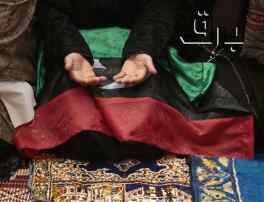| « Resist a Larger War Into Libya | Cheerleading for War » |
Libya – What Now?
By Brian Downing
 After weeks of indecision, the NATO powers and a few Arab states have taken action against the Kadafi regime and its armed forces. NATO aircraft and missiles have devastated loyalist air defenses, troops concentrations, and supply convoys. Rebel forces have been heartened and have even made some counteroffensives out of their enclave in Benghazi. (Image)
After weeks of indecision, the NATO powers and a few Arab states have taken action against the Kadafi regime and its armed forces. NATO aircraft and missiles have devastated loyalist air defenses, troops concentrations, and supply convoys. Rebel forces have been heartened and have even made some counteroffensives out of their enclave in Benghazi. (Image)
NATO resolve is not strong, but an agreement today (March 24) will likely guarantee that the air campaign continues. Abandoning it now or reducing it to a no-fly zone only would be a severe embarrassment to the alliance and lead to lasting mistrust within it. Furthermore, it might leave Libya in a murderous stalemate or an unstable partition ever on the brink of renewed war.
In either case, Colonel Kadafi may seek to settle scores with the NATO powers through terrorism or he could look on in amused triumph as the world tries to patch things up and get back to the business of buying his oil.
Few in Washington or Paris or London or Brussels will say it openly, but they wish to see Kadafi removed from office. Continued attacks are likely seeking to bring about his removal, one way or another. The swiftest method to oust Kadafi would be through assassination by someone in his security apparatus or through a missile strike. (It is thought that the latter was attempted a few nights ago when missiles evidently hit his headquarters, but it’s unlikely anyone would seriously think that Kadafi was in so obvious a place while Libya was being attacked.)
The skill with which Kadafi’s forces countered the rebellion in the weeks before foreign intervention suggests that the sons, Saif and Khames, and not the dissociated father are directing operations. Accordingly, removing the father, but leaving the sons to continue the fight, might have the unintended consequence of strengthening the House of Kadafi.
NATO airpower will also seek to wear down loyalist forces and leave the Kadafis with fewer reliable forces and with more disciplined troops on the rebel side. Protracted exposure to airstrikes will of course lead to greater casualties in the loyalist ranks, but it will also lead to desertions and refusals to follow orders. Cut off from supply lines, troops will have to disperse and forage – a situation that armies for centuries have known will lead to desertion.
Rebel officers and political leaders are likely seeking to open talks with former colleagues still on the loyalist side. (One report asserts that a significant defection is being brokered near Ajdabiya with the help of local mullahs.) Without defections from loyalist forces, it is unlikely that rebel forces will have the trained troops and logistical skill to launch sustained offensives from their redoubts in a handful of cities and drive on the loyalist capital of Tripoli.
Rebel officials might point out to their counterparts that much of the world opposes them, their regime’s days are limited, and that they can play an important role in building a new Libya. President Mubarak allowed a façade of democracy in Egypt, but Kadafi ruled as though he were a mythic tribal-king at one with his people, leaving Libya bereft of political parties, unions, professional associations, and other aspects of civil society.
Inasmuch as western countries are loath to set foot or boot on Libyan ground for fear of tainting anyone as an ally of neo-imperialism and of being ensnarled in a decade or more of nation-building, the post-Kadafi country will need a great deal of cooperation from its political and military groups to build representative government and transform a nation blessed with natural resources into a potential economic and cultural center for the region.
© 2011 Brian M Downing
Brian M Downing is the author of several works of political and military history, including The Military Revolution and Political Change and The Paths of Glory: War and Social Change in America from the Great War to Vietnam. He can be reached at brianmdowning@gmail.com [1].


